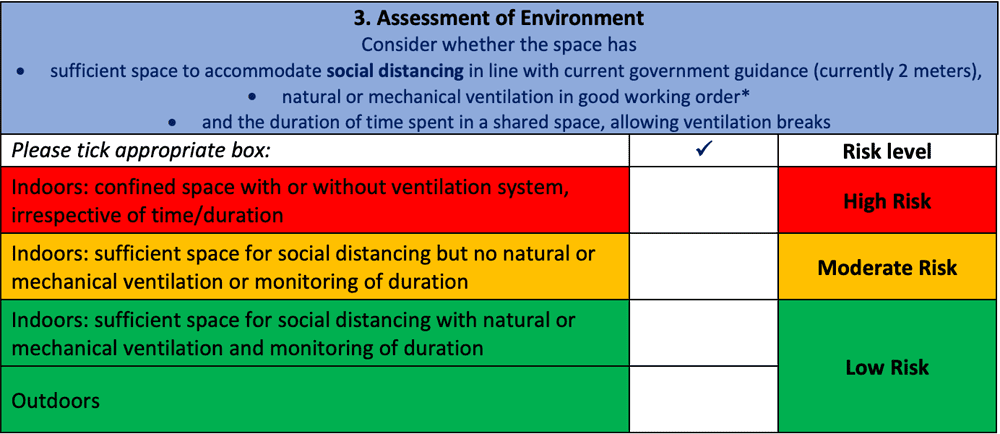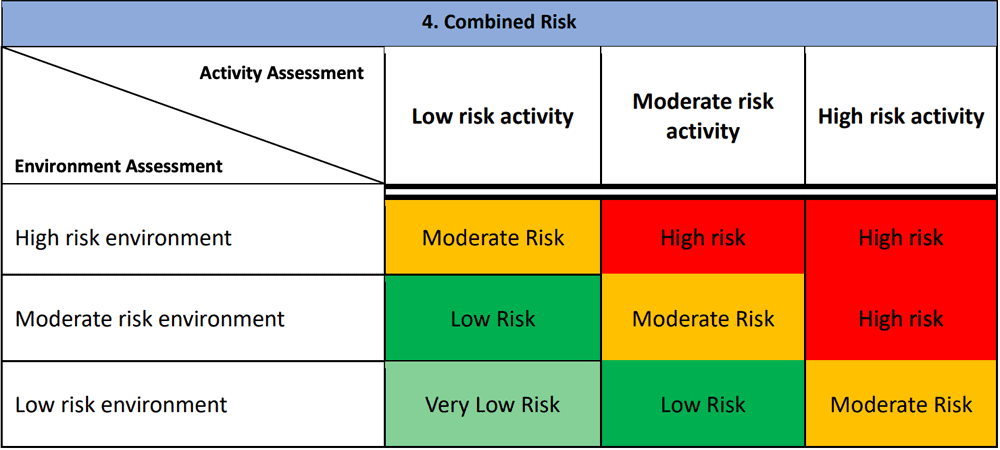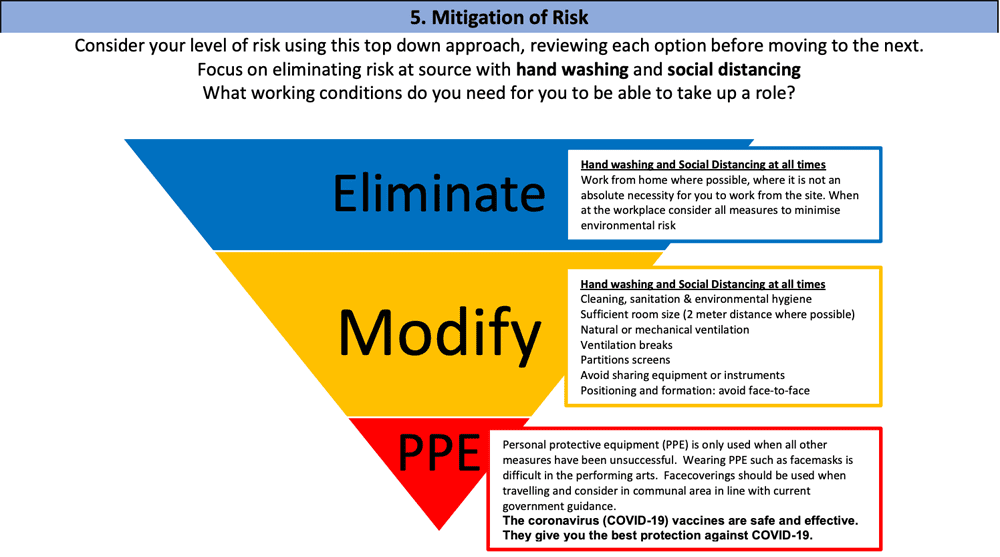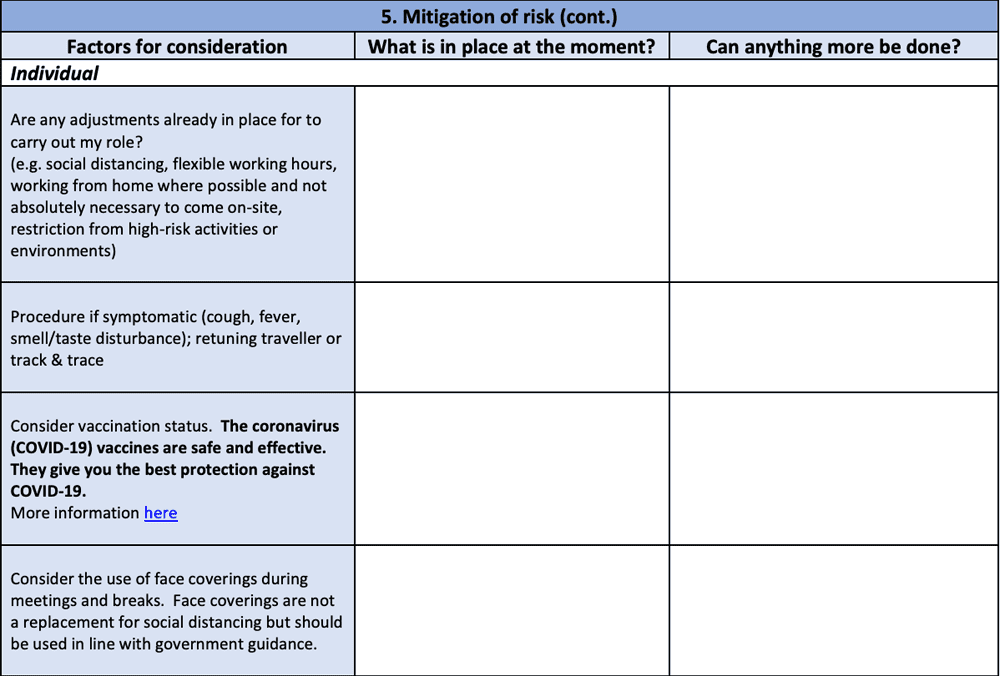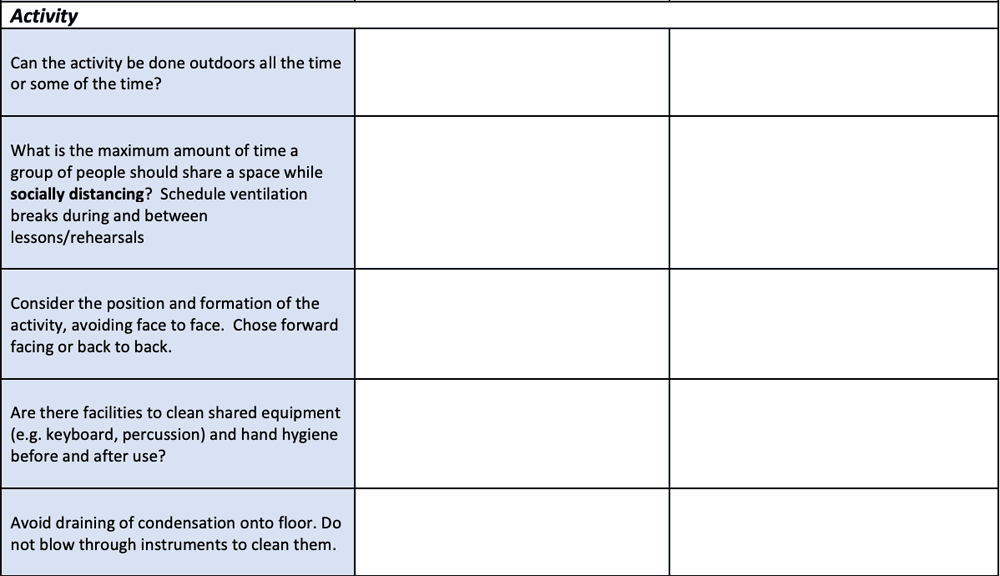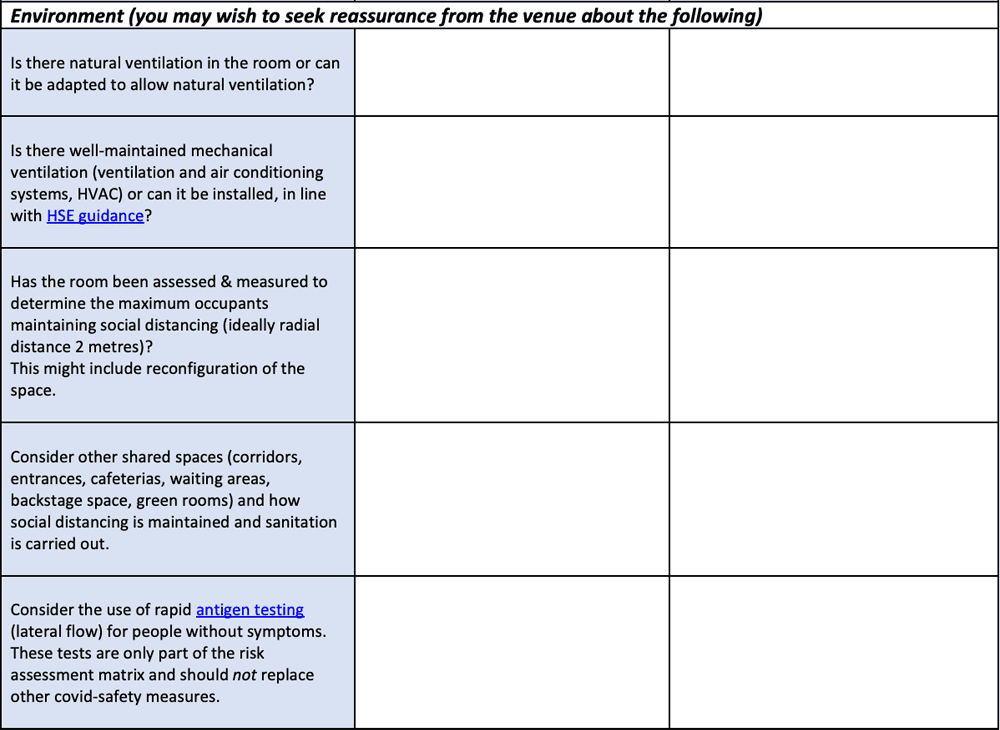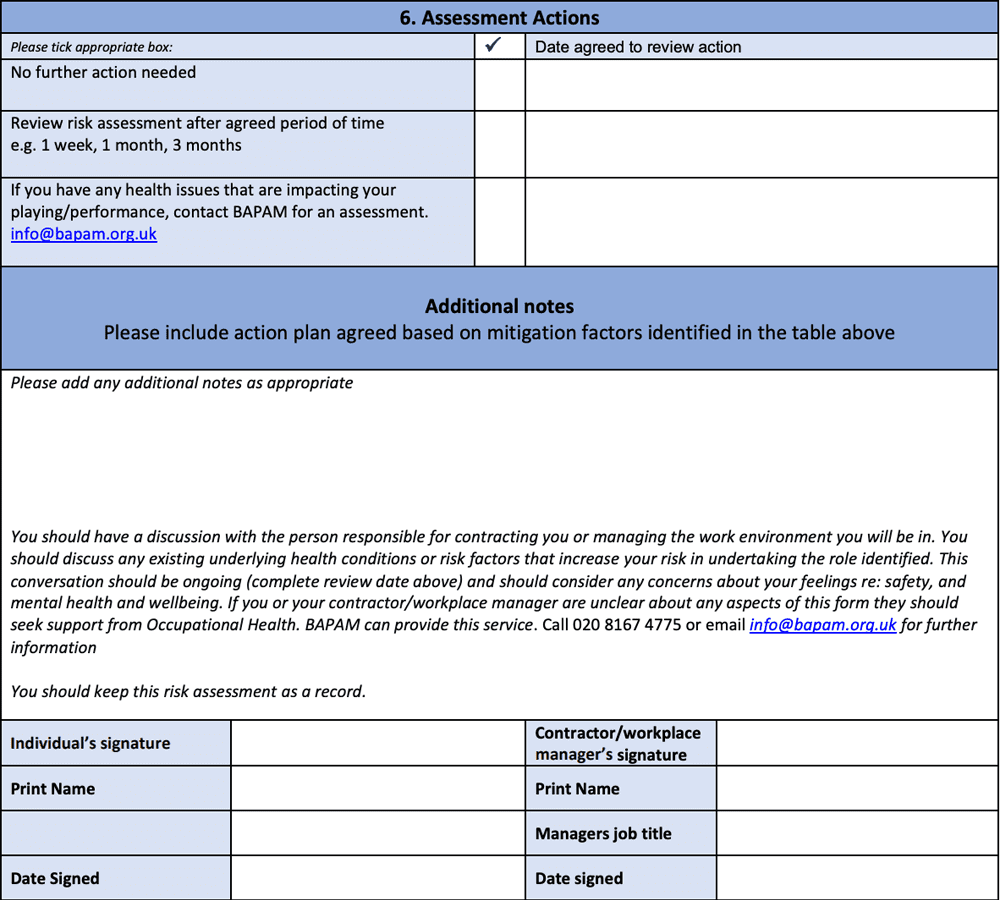British Association for PERFORMING Arts Medicine
Risk Assessment for freelance performers returning to work during COVID-19
Introduction
Check our health resources for more advice and resources, including guidance on warm-ups, physical and mental health, vocal health, nutrition and touring. Find out about our free healthy practice training sessions and creative community support by looking at our events.
This factsheet is also available as a downloadable PDF and a folding pocket sized leaflet. To order copies of the leaflet please email info@bapam.org.uk.
JUNE 23, 2021
As a freelance performer, it is helpful to complete your own risk assessment before returning to performing. You should also ask for the risk assessment from your place(s) of work or rehearsal/performance venues, to ensure that they have covered any risks which might affect you and let them know about any ways in which you might need additional support when you return, so that you can discuss any arrangements.
COVID-19 has presented a significant challenge to the performing arts sector, and you may have faced difficulties in maintaining practice and readiness to perform whilst social distancing at home. In advance of returning to perform, you are advised to build up practice routines slowly to avoid injury. Further advice on building fitness to perform is available here.
If you have had COVID-19, you may have additional complications which affect your ability to practise and perform. Voice-users, for example, are advised to recuperate for 6-8 weeks after the virus to allow recovery. Advice from sports medicine published in the Lancet and JAMA suggests resting for two weeks after the start of symptoms and getting back to playing slowly, seeking medical help if things don’t improve. 1% of COVID-19 sufferers have a heart problem and further diagnostics and treatment may be needed. Common after effects of COVID-19 include fatigue, prolonged cough and for some there maybe long-term lung damage, kidney damage and blood clotting. Those patients who have been in ICU will need rehabilitation. Further advice on recovering from covid is available here.
The aim of this assessment is to understand the specific risks you face, including your individual level of vulnerability and your risk of exposure to COVID-19, and enable these risks to be mitigated as far as possible. It should be completed in conjunction with the latest guidance from local public health guidance, such as Public Health England Public Health England (PHE) With emerging evidence, risk categories have been revised, and consider age, sex and ethnicity as well as medical conditions and vaccination status. The coronavirus (COVID-19) vaccines are safe and effective. They give you the best protection against COVID-19. More information here. Completing the sections below will help you understand your level of risk, and you can use your self-assessment to discuss arrangements for your return with your contractor, or the person managing the environment in which you will be working.
Guidance for people who work in performing arts, including arts organisations, venue operators and participants has been published by PHE and is probably the most applicable to freelance work environment. General guidance on social distancing, hygiene and hand washing can be found here.
Guidance on travel abroad or returning from travel changes frequently, so we advise you to consult your local government guidance, such as https://www.gov.uk/foreign-travel-advice for accurate information on the need for testing and self-isolation or quarantine.
If you develop Coronavirus symptoms, however mild, or you have received a positive coronavirus (COVID-19) test result, then you should immediately self-isolate and stay at home for recommended duration. Your household contacts may also be required to self-isolate under this guidance. Regular rapid lateral flow coronavirus tests are also available for people who do not have symptoms. These tests are only part of the risk assessment matrix and should not replace other covid-safety measures.
BAPAM COVID-19 RA June 2021 v3.1
Please review the table below to assess your level of vulnerability to COVID-19. We suggest you use the “COVID-age calculator” https://alama.org.uk/covid-19-medical-risk-assessment/ which allows you to review your risk factors and give a COVID-age to your workplace if they need it. This means you don’t have to disclose any specific health issues, but can still give them an assessment of your individual vulnerability level.
To use the calculator, enter your risk factors into the online calculator https://alama.org.uk/covid-19-medical-risk- assessment/ This updated version, considers vulnerability, immunity and viral prevalence to inform individuals’ workplace risk into very high, high, moderate or low.
*The HSE recommend that If you use a centralised ventilation system that removes and circulates air to different rooms, it is recommended that you turn off recirculation and use a fresh air supply.
- Risk management requires a value judgement to decide whether the existing control measures are sufficient or whether more should be done.
- The option, or combination of options, which achieves the lowest level of residual risk should be implemented, provided it does not pose an alternative risk to the project. (e.g. If you are part of a group of musicians planning to record together, you may be able to record your part from home, or work with different combinations of group members at different times to allow adequate social distancing and mitigate risk.)
- If the risk is too high, and you can’t take any mitigating action, it may be necessary to postpone return to work for this project.
GET IN TOUCH WITH US
Drop us a line
BAPAM is a Registered Charity No. 1167785
Contact us:
London Office
63 Mansell Street, London, E1 8AN




